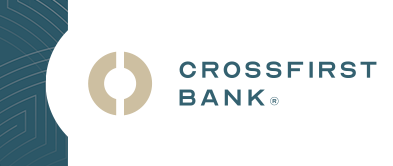
Whether you’re a college student, young adult, or someone who’s never established a credit history before, now may be a good time to start building credit and monitoring your credit scores.
Having a good credit history will make it easier to access financing for vehicles, housing, and other necessities. Here are some tools to help you establish and build your credit.
Five Credit Building Tools
- An effective strategy to build initial credit is to become an authorized user on a parent's credit card. As an authorized user, you benefit from the primary cardholder's positive payment history. This can be an excellent way for students or young adults to start building credit without being solely responsible for managing a credit card. However, it is crucial for students and parents to communicate openly about the responsibilities and expectations associated with this arrangement.
- Secured credit cards are another viable option for building credit, without the need for a cosigner. These cards require a cash deposit that serves as collateral and sets the credit limit. Similar to regular credit cards, charges can be made up to the credit limit, and monthly payments must be made. Over time, responsible use of a secured credit card can help build a credit history, eventually leading to the opportunity to qualify for an unsecured credit card.
- When you’re ready for your own unsecured credit card, consider applying for a student credit card, which is specifically designed for young adults with limited or no credit history. By making small, manageable purchases and paying off the balance in full each month, you can demonstrate responsible borrowing behavior and begin to establish a positive credit history. Remember – if you don’t pay your full balance owed each month, you will have to pay interest on your credit card. The larger balance you owe, the more interest you pay. And credit card interest rates tend to be very high. Use extreme caution when using an unsecured credit card. If you run up a high balance that takes a long time to pay off, you could end up paying thousands of dollars in interest and find yourself buried in credit card debt very quickly.
- Student loans are another common way you can build credit. By taking out student loans and making timely payments, students can establish credit. It is important to start by paying any interest that accrues while still in school, and after graduation, adhering to the repayment schedule. This will demonstrate reliability to future lenders.
- Use a rent reporting service to report your on-time rent payments to the credit bureaus. Generally, rent payments are not reported to the credit agencies. However, if you utilize a rent reporting service, that information will be added to your credit report and can help you build a solid credit history and increase your credit score. Keep in mind, some of these reporting services may charge a fee.
Protect Your Credit Against Fraud or Inaccuracies
Building credit also involves regular monitoring of credit reports. You should obtain a free copy of your credit report from each of the three major credit bureaus—Experian, Equifax, and TransUnion—once a year through annualcreditreport.com. Reviewing these reports can help you understand your credit standings, spot errors (and file disputes if needed), and ensure that your responsible borrowing activities are accurately reflected.
You also might consider a credit freeze, which will stop any new loans or credit cards from being opened in your name. You can easily unfreeze your credit, either temporarily or permanently, when you apply for a loan or credit card.
What Impacts Your Credit Score?
You must also be aware of the factors that impact your credit score, such as payment history, credit utilization, length of credit history, new credit, and types of credit used. By understanding these factors, you can make informed decisions that positively influence your credit scores.
Financial Essentials
Finally, it is crucial for you to practice good financial habits. This includes creating and sticking to a budget, avoiding unnecessary debt, and managing expenses wisely. Financial literacy resources, such as workshops, courses, and counseling offered by many colleges, can provide valuable knowledge and support to help you navigate your financial journey.
Summary
Building credit is essential for future financial stability. Establishing credit early can pave the way for favorable loan terms, lower insurance premiums, and better rental agreements, ultimately contributing to a secure financial future.
Personal
July 16, 2024 by CrossFirst Bank

